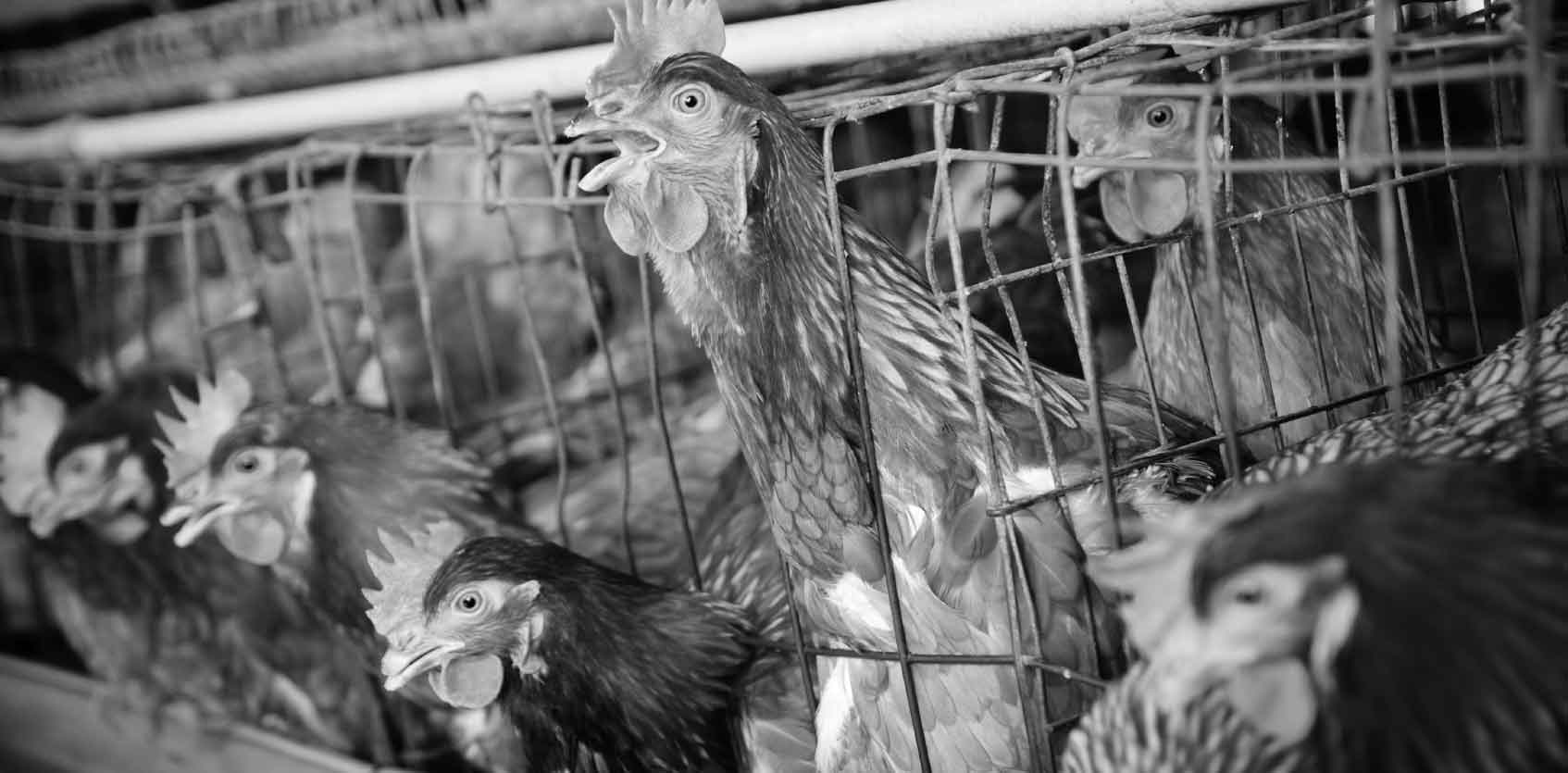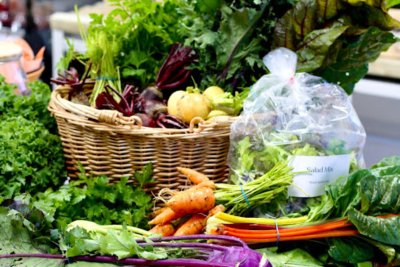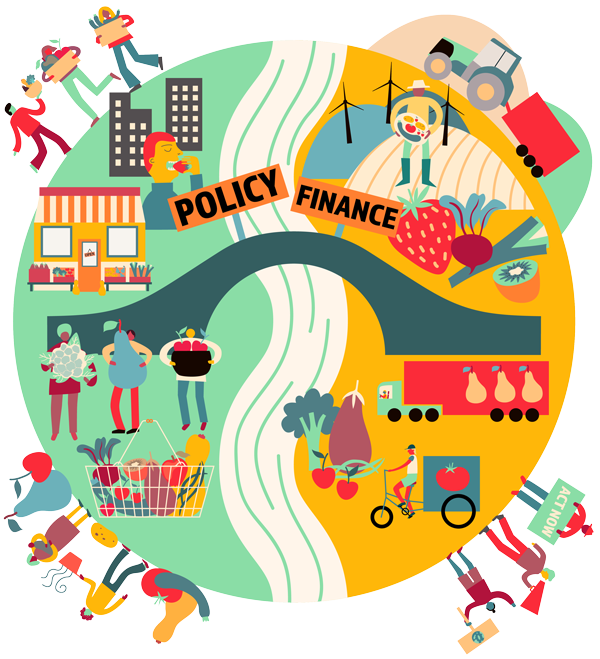
The alliance members have written to Liam Fox and Brexit Secretary David Davis, urging them to uphold high food standards in the UK's new Trade Bill and the EU Withdrawal (Repeal) Bill. The text of the letter, and the list of signatories, are shown below, submitted 24 August 2017.
Dear Secretary of State for International Trade Liam Fox,
and Secretary of State for Exiting the European Union David Davis,
We are concerned to hear that Dr Fox may consider the UK accepting chlorine-dipped chicken in order to win a new trade deal with America, and that he considers such issues as “detail”. In fact, chlorine-dipped chicken is an emblem of many differences between the way the US and the UK approach food safety and quality standards.
Winning trade deals is of course important for the economy, but changing food standards without appropriate consideration and agreement is unacceptable. As is allowing any move that might limit the UK’s ability to set environmental, social or ethical standards for our food, to meet our national priorities. The Government does not have the mandate to do so. We also fear that our UK trade negotiators are unlikely to have the qualifications to decide such important food standards on our behalf, which may impact on our well-being and the health of our children.
Such decisions must be put before British people, health specialists, scientific scrutiny and our elected representatives, for proper examination. These are the kinds of decisions that no-one who cares about the food they eat will accept being decided behind closed doors. We fully expect the UK’s forthcoming Trade Bill to make provision for transparency in negotiations and scientific and parliamentary scrutiny of new trade agreements.
Illustratively, our concerns about US food standards relate to (but are not limited to) meat hygiene; farm antibiotic use; irradiated meat; ‘pink slime’ beef production; traceability; animal welfare; pesticides; the prevalence of high fructose corn syrup in US processed foods; colourings and additives; baby food standards; food labelling, and a generally more litigious culture in the US food industry that is vocally resistant to public and scientific scrutiny.
These are not details. Please do not force US food standards on us. During the forthcoming Parliamentary session, please champion transparency, and the proper role of both scientific and parliamentary scrutiny, in both the Trade Bill and the EU (Withdrawal) Bill (Repeal Bill). Our organisations – as do very many others with whom we cooperate – consider the Repeal Bill must:
- Retain legal principles that underpin good environmental protection, such as the precautionary principle, the principle that preventive action should be taken, that environmental damage be rectified at source, that the polluter should pay, and access to justice; also that animals are sentient beings.
- Make provision for important citizen rights to be re-instated in UK law that will be lost through the repeal of the EU Charter of Fundamental Rights.
- Confirm that any substantive changes to UK policies and standards, before or after Brexit, must be made by primary legislation only, giving a full and proper role to parliamentary scrutiny, on behalf of UK citizens and, where relevant, scrutiny by devolved administrations in Scotland, Wales and Northern Ireland.
- Limit delegated powers, including Henry VIII powers, strictly to the purpose of faithful conversion, with a statement on the face of the bill that powers cannot be used for purposes beyond faithful conversion, and with a time limit or ‘sunset clause’ for the exercise of such powers.
- Set out new arrangements for good food governance, to ensure the continued provision by suitable organisations of: monitoring, measuring, ensuring proper implementation, checking compliance, enforcing, reviewing and reporting, coordinating and publicising. These must have adequate resources, appropriate independence, relevant expertise and sufficient powers, to deal with, for example food safety, animal and plant health, pesticides, food traceability, food fraud and environmental protection.
Through the Repeal Bill process, the Government must also commit to continued promotion of important strategies and plans on which the resilience of our food system depends, and policies and resources to implement them effectively, such as (but not limited to) strategies to protect pollinators, the strategy to reduce unnecessary use of antibiotics in farming, and the strategy for protecting and improving soil. Further, these must not be undermined by the provisions of future trade deals.
We would welcome a response to this letter, responding to the points made and reassuring our organisations and the millions of citizens we and our members serve, that you will be a champion of better food standards, not an agent of our food standards being watered down, removed or rendered ineffective by international trade deals.
Yours sincerely,
Kath Dalmeny, Chief Executive, Sustain: The alliance for better food and farming
With the support of:
- Cóilín Nunan, Scientific Advisor, Alliance to Save Our Antibiotics
- Vicki Hird, Coordinator, Campaign for Better Farming
- Tim Lang, Professor of Food Policy, Centre for Food Policy, City University of London
- Tony Lewis, Head of Policy, Chartered Institute of Environmental Health
- Philip Lymbery, Chief Executive, Compassion in World Farming
- Katharine Jenner, Campaign Director, Consensus Action on Salt and Health, also Action on Sugar
- Dr Liz Charles, Project Manager: Food, Durham Community Action
- Sue Dibb, Executive Director, Eating Better: for a fair, green, healthy future
- Professor John Middleton, President, Faculty of Public Health
- Professor Simon Capewell, Vice President, Faculty of Public Health
- Tracy Worcester, Director, Farms Not Factories
- Carina Millstone, Executive Director, Feedback: the global food waste campaign
- Dr Helen Crawley, Director, First Steps Nutrition Trust
- Dan Crossley, Executive Director, Food Ethics Council
- Dr Tim Lobstein, Director, Food Information Trust
- Geoff Tansey, Curator, Food Systems Academy
- Jonathon Porritt, Founder Director, Forum for the Future
- Clare Oxborrow, Senior Campaigner: Land, Food and Water, Friends of the Earth
- Liz O'Neill, Director, GM Freeze
- Marjon Willers, Director, Health Education Trust
- Steve Nash, Co-Founder, HUSH: The UK E.coli Support Group
- David Powell, Environment Lead, New Economics Foundation
- Keith Tyrell, Director, Pesticides Action Network
- Stephanie Wood, Founder and Chief Executive, School Food Matters
- Alison Swan Parente MBE, Chair of Trustees, School of Artisan Food
- Peter Melchett, Policy Director, Soil Association
- David Barling, Professor of Food Policy and Security, University of Hertfordshire
- Erik Millstone, Professor of Science Policy, University of Sussex
The Sustain alliance is a registered charity (number 1018643) and a company limited by guarantee, which is registered in England and Wales (number 02673194). Registered office: Development House, 56-64 Leonard Street, London EC2A 4LT
CREDIT: Photograph of caged hens by Sandeep Subba
Good Food Trade Campaign: Campaigning for good trade that benefits people and the planet at home and overseas.
Sustain
The Green House
244-254 Cambridge Heath Road
London E2 9DA
020 3559 6777
sustain@sustainweb.org
Sustain advocates food and agriculture policies and practices that enhance the health and welfare of people and animals, improve the working and living environment, promote equity and enrich society and culture.
© Sustain 2024
Registered charity (no. 1018643)
Data privacy & cookies






